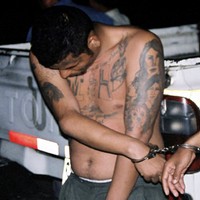El Salvador, only recently home to the world’s second-highest homicide rate, has watched murders plummet by 60 percent since early March. The unprecedented decline, however, is not the result of conventional policies aimed at eliminating criminal activity, but rather a very different development: a negotiated truce between the country’s two leading gangs, the Mara Salvatrucha (MS-13) and Barrio 18. On March 9, some 30 gang leaders were moved to lower security prisons to engage in discussions led by the Catholic Church and a former congressman. El Salvador’s online investigative journal El Faro broke the story on March 14, and the gangs issued a joint statement confirming the pact a week later. President Mauricio Funes and the Salvadoran government have repeatedly denied any role in the negotiations, despite abetting them by authorizing the prison transfers.
The early results of the agreement have been promising. On April 15, El Salvador witnessed its first homicide-free day in nearly three years. Just last week, the gangs vowed to end the practice of forcible recruitment and expanded the cease-fire to schools, declaring them “zones of peace.”
But the gang truce has left lawmakers and security experts in El Salvador and across the region grappling with a slew of unsettling questions. The plunge in homicides has no doubt been a welcome development in a country boasting a murder rate of 66 per 100,000 inhabitants, more than three times that of Mexico and 13 times that of the United States. But there is widespread skepticism on how long it will last. Beyond the prison transfers to facilitate the agreements and communicate the truce to rank-and-file members, it is unclear what, if any, further concessions have been made to incentivize long-term peace. If the current breakdown of Belize’s 2011 gang truce is any indication, such pacts are bound to unravel without the guarantee of protection for demobilized gang members and resources for their reintegration into society.

